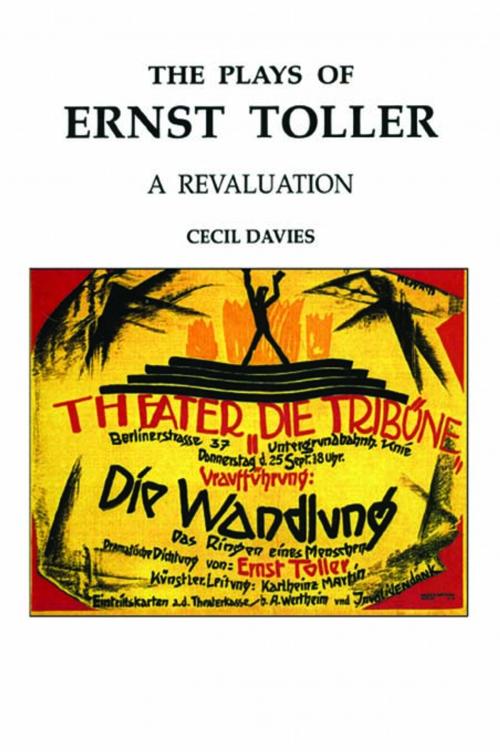| Author: | Cecil Davies | ISBN: | 9781134361854 |
| Publisher: | Taylor and Francis | Publication: | September 13, 2013 |
| Imprint: | Routledge | Language: | English |
| Author: | Cecil Davies |
| ISBN: | 9781134361854 |
| Publisher: | Taylor and Francis |
| Publication: | September 13, 2013 |
| Imprint: | Routledge |
| Language: | English |
This book is the fullest and most detailed study yet published in English of Ernst Toller's plays and their most significant productions. In particular the productions directed by Karl-Heinz Martin, Jurgen Fehling and Erwin Piscator are closely analyzed and the author demonstrates how, brilliant though they were, they obscured or even distorted Toller's intentions. The plays are seen as eminently stage-worthy while worth lies in Toller's use of language, both in prose and inverse. The neglected puppet-play The Scorned Lovers' Revenge is analyzed from a new perspective in the light, both of its language and its sexual theme, so important in Toller's writings as a whole. The reader is led to appreciate why Toller was regarded as the most outstanding German dramatist of his generation until, after his death in 1939 his reputation was overlaid by that of Brecht. This book should do much to restore Toller to his proper place in theatre history.
This book is the fullest and most detailed study yet published in English of Ernst Toller's plays and their most significant productions. In particular the productions directed by Karl-Heinz Martin, Jurgen Fehling and Erwin Piscator are closely analyzed and the author demonstrates how, brilliant though they were, they obscured or even distorted Toller's intentions. The plays are seen as eminently stage-worthy while worth lies in Toller's use of language, both in prose and inverse. The neglected puppet-play The Scorned Lovers' Revenge is analyzed from a new perspective in the light, both of its language and its sexual theme, so important in Toller's writings as a whole. The reader is led to appreciate why Toller was regarded as the most outstanding German dramatist of his generation until, after his death in 1939 his reputation was overlaid by that of Brecht. This book should do much to restore Toller to his proper place in theatre history.















